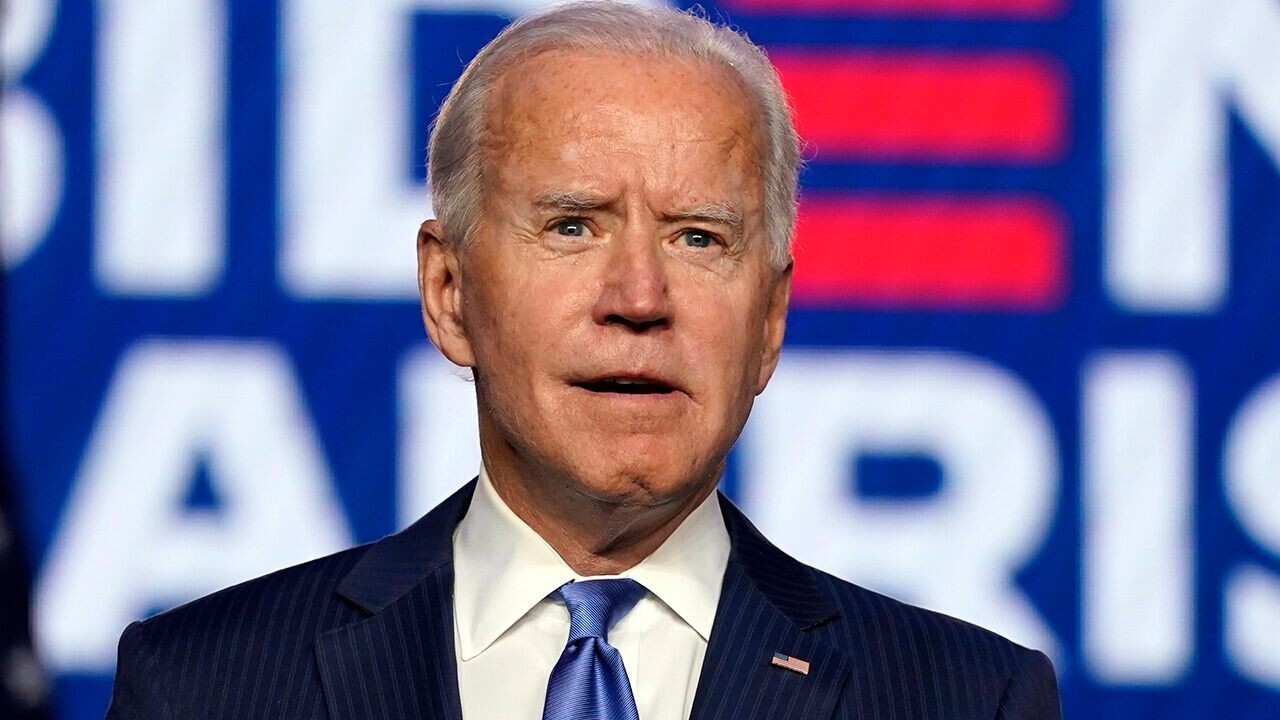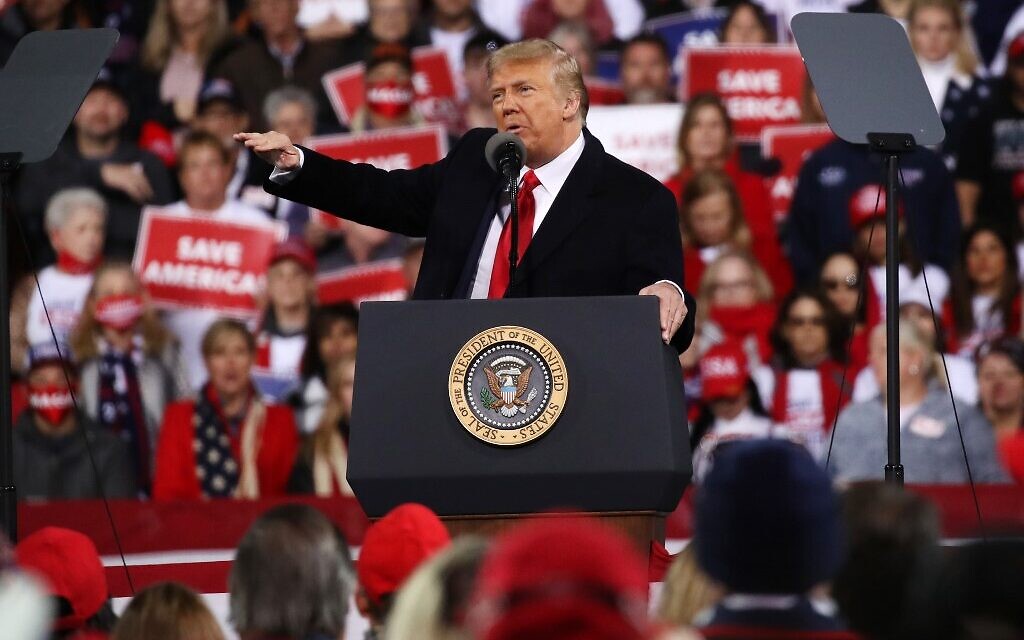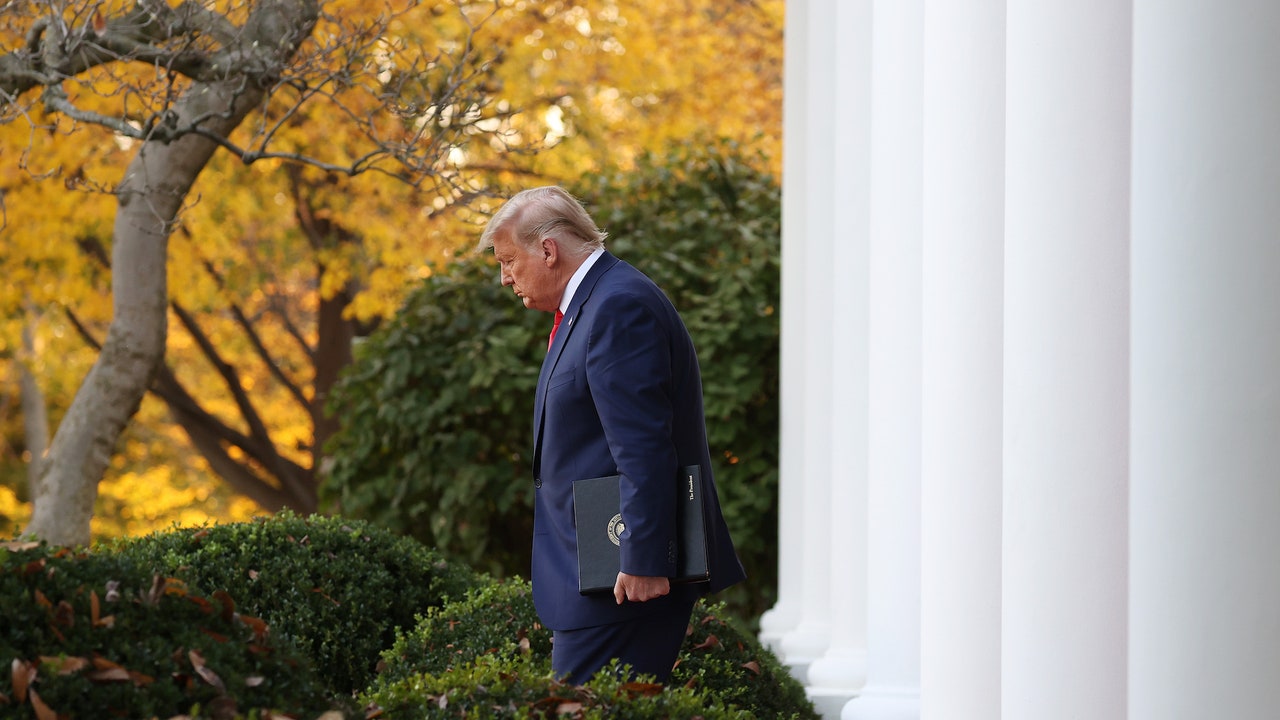Congress, White House have until Dec. 11 to reach spending deal in middle of coronavirus pandemic
By Jeff Stein
November 18, 2020 at 2:20 p.m. EST
White House Chief of Staff Mark Meadows said Wednesday that he “can’t guarantee” lawmakers will be able to reach a deal to avert a mid-December shutdown of the federal government.
Congress and the White House have until Dec. 11 to approve new spending legislation to prevent the federal government from shutting down in the middle of a pandemic and amid a surge in coronavirus cases. Meadows said he was hopeful an agreement would be reached but did not rule out that an impasse. There has already been two government shutdowns during President Trump’s four years in office, one lasting more than a month.
Lawmakers this week began negotiations on spending legislation that would fund the government and avert the shutdown, but key sticking points remain over international aid policy, public health spending and tribal health care, among other policy disagreements, according to Sen. Patrick J. Leahy (D-Vt.), vice chairman of the Senate Appropriations Committee.
If Congress doesn’t act, 12 million Americans could lose unemployment aid after Christmas
If appropriators cannot reach agreement on legislation to fund federal agencies, Congress could approve a “continuing resolution” that would lock in existing spending levels with no change to existing policy. White House officials say they want to fund the government, but Trump’s erratic policy demands and negotiating style have for years upended negotiations with Congress, culminating in the longest-ever government shutdown in 2018 over his demands for a wall on the U.S.-Mexico border.
Meadows met with Senate Majority Leader Mitch McConnell (R-Ky.) at the Capitol on Wednesday. While not ruling out the possibility of a shutdown, Meadows said: “I can tell you it’s a high priority to make sure we keep our government funded. … Obviously, we want to keep the government funded.”
The spending talks come at a moment when the partisan divide on Capitol Hill is widening. Trump still refuses to concede the outcome of the Nov. 3 election and has not expressed any interest in working with Democrats since Joe Biden was projected as the winner.
Economists who have clamored for additional stimulus legislation warn that a federal shutdown could further imperil the national recovery. Congress also faces the looming expiration of numerous economic protections by the end of the year, including benefits for millions of jobless Americans and protections for renters and student borrowers.
‘In the White House waiting’: Inside Trump’s defiance on the longest shutdown ever
Negotiations over a stimulus package have faltered, with no discussions currently occurring between McConnell and House Speaker Nancy Pelosi (D-Calif.), according to congressional aides. Pelosi and Senate Minority Leader Charles E. Schumer (D-N.Y.) sent a letter Tuesday to McConnell asking for the resumption of negotiations. The White House has taken a back seat in discussions over a stimulus package since Trump lost the presidential election.
Congressional aides say talks over the stimulus are expected to occur independently of negotiations over the “omnibus” package that would involve approving 12 funding bills for federal agencies. At her news conference on Wednesday, Pelosi appeared to confirm that the stimulus and government funding negotiations would be conducted separately.
“We will pass an omnibus. … We are on a good path to do that,” Pelosi told reporters.
Appropriators are working to set the overall spending levels for those bills, according to Sen. Richard C. Shelby (R-Ala.), chairman of the Senate Appropriations Committee. Then, lawmakers will have to reach bipartisan agreement on the policy substance of those 12 underlying bills and try to pass them before Dec. 11.
“We’re still negotiating them. We’re getting close on all of it. We’re not there yet,” Shelby told reporters, according to a pool report. “We’re working at it.”





